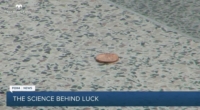The G20 Chief Science Advisers’ Roundtable (CSAR) will convene to discuss free, universal access to scientific knowledge, including high subscription fees for scientific journals and an open access mandate for public-funded research. The roundtable will also focus on promoting One Health for disease control and preparedness, improving diversity, equity, inclusion, and accessibility in science and technology (S&T), and setting up an institutional mechanism for inclusive, continuous, and action-oriented global S&T policy dialogue. Participating G20 nations will discuss a pandemic preparedness plan for flexible, adaptive, and timely responses to pandemics, as well as integrated disease surveillance mechanisms for humans, livestock, and wildlife, as part of the One Health agenda. The S20 Engagement Group comprises the national science academies of the G20 countries, while the G20 Research Innovation Initiative Gathering (RIIG) aims to address the challenges of achieving socioeconomic equity through research and innovation.
G20 Roundtable to Discuss Universal Access to Scientific Knowledge
The G20 Chief Science Advisers’ Roundtable (CSAR), a government-to-government initiative, will convene to discuss free and universal access to scientific knowledge. The roundtable will focus on issues such as high subscription fees for scientific journals and an open access mandate for public-funded research.
India, which assumed the G20 presidency on December 1, 2022, will host the G20 summit in New Delhi from September 9-10, 2023. In the run-up to the summit, CSAR will hold two high-level meetings in Ramnagar, Uttarakhand (March 26-28, 2023) and Bengaluru (August 27-29, 2023).
At a media briefing held on March 24, 2023, Ajay Sood, principal scientific adviser to the Government of India, highlighted the unique position of chief science advisors and their equivalents in driving policy changes by providing evidence-based scientific advice.
During the meetings, participating G20 nations will discuss topics such as access to scientific journals that are free, immediate, and universal; high subscription and article processing charges imposed by journals; interoperable inter-linking of national repositories with international repositories and archives; and open access mandates to make knowledge outputs of public-funded scientific research widely available.
Parvinder Maini, scientific secretary at the office of the principal scientific adviser to the Government of India, expressed optimism about the outcomes of the meetings, stating that there was enormous support from participating G20 nations. Maini also expressed the hope that actionable items would be agreed upon by the end of the meeting in August, with a consensus statement to be made at the summit.
According to Vox, most scientific papers charge high subscription fees from readers. In 2019, the University of California terminated its nearly $11 million annual subscription to Elsevier, the world’s largest publisher of academic journals. Open-access journals, on the other hand, are free for readers but charge fees from scientists who wish to publish papers in them.
However, according to the science journal Nature, open-access papers have significantly fewer lead authors from low-income regions than paywalled articles.
CSAR’s Agenda for One Health and Global S&T Policy Dialogue
The G20 Chief Science Advisers’ Roundtable (CSAR) will discuss a range of topics, including promoting One Health for disease control and preparedness, improving diversity, equity, inclusion, and accessibility in science and technology (S&T), and establishing an institutional mechanism for inclusive, continuous, and action-oriented global S&T policy dialogue.
One Health Agenda
Participating G20 nations will discuss a pandemic preparedness plan for flexible, adaptive, and timely responses to pandemics, as well as integrated disease surveillance mechanisms for humans, livestock, and wildlife, as part of the One Health agenda.
Moreover, they will talk about developing a roadmap for diseases and investing in analytics capacity, such as disease modeling, artificial intelligence, and machine learning tools, and data standards.
Ajay Sood, the principal scientific adviser to the Government of India, highlighted at the media briefing that data sharing will help in responding to future pandemics and modeling. “There are challenges. In general, there is an understanding that nations would like to contribute to this effort,” he added.
Furthermore, the roundtable will create an open platform for countries to put their thoughts forward and understand what is holding some countries back from contributing to this mechanism.
Other Initiatives
Other government-to-government initiatives, such as Science-20 (S20) and G20 Research Innovation Initiative Gathering (RIIG), are part of the G20.
The S20 Engagement Group comprises the national science academies of the G20 countries, while RIIG aims to address the challenges of achieving socioeconomic equity through research and innovation.
Don’t miss interesting posts on Famousbio









